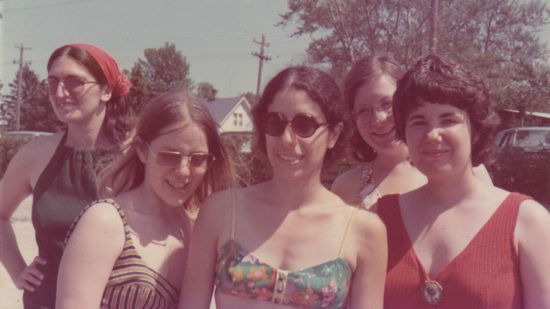Sundance 2022 Review: The Janes -“A timely and urgent film”

A still from The Janes by Emma Pildes and Tia Lessin, an official selection of the U.S. Documentary Competition at the 2022 Sundance Film Festival. Courtesy of Sundance Institute.
In Illinois in the 1960s abortion was a crime. I’m sure that those of us fortunate enough to live in places where this important part of women’s health is legal never think about that. I’m sure many that live in a place where this right is now being threatened again think about it all too often. It certainly doesn’t seem coincidental that Sundance has three films this year focusing on reproductive health of women and I’ve discussed this in reviews for the French film Happening as well as Call Jane, which is a narrative based on the subjects of this documentary The Janes. In the U.S., Roe v. Wade, a landmark decision from the Supreme Court 49 years ago that made abortion legal, is under threat of being overturned. So it’s not surprising we have more films being produced that inspire discussion. The Janes is an important and essential work that not only acts as a tribute to a fearless group of women, but acts as a warning of what can happen if reproductive rights are removed.
In 1968 however, Heather realized she couldn’t handle the number of requests she was getting, so she found about twelve other women, handed over all the information she had to get them started, and the Jane collective was started. They used index cards to help keep all the messages from women straight. They counselled every single one on what to expect. They provided a safe, clean environment for the procedure. They followed up afterwards. When you hear women talk about it, they use words like kindness, consideration, concern and respect. For some women, who had only encountered the male-dominated medical field, it was the first time they’d had such a compassionate experience.
Lessin and Pildes work in a linear way, bringing together historical archival footage as well as current interviews from several members of The Janes, many of whom have their own horrible stories of illegal abortions before the collective. They’re stories of paying upwards of $1000 to the mob, men who would sexually assault women when they showed up for an abortion, or ending up in hospital due to botched procedures. In those days one hospital in Chicago had its own septic abortion ward for women whose either self-inflicted attempts at abortion or horribly performed illegal procedures resulted in life-threatening injury. A doctor interviewed noted they would see 15-20 women a day injured in this way. Per day. Many of these stories are incredibly heartbreaking. And what makes it even more tragic is that they are entirely preventible.
Though, while you may not expect it, The Janes also has its lighter moments. The women of this clandestine operation, now talking about it decades later, are good humoured in many of their recollections as are some of the husbands interviewed. Yet, they never gloss over the seriousness of their situation, the toll it took on their own mental health, the risks they were taking. Many of the members came from other activist organizations – the anti-war movement or Civil Rights Movement – but their actions now came with heavier personal consequences than the marches and protesting in which they had participated. Their services could, and did eventually, put them in jail, but not before they had helped 11,000 women with their care. “Men underestimating women’s abilities worked very well for us,” one member says in the film. It allowed them to keep going for as long as they could. Until the passing of Roe v. Wade rendered The Janes thankfully obsolete in January 1973.
As is noted in this documentary, women will do a lot out of fear and desperation, and it can leave them badly injured, or even lead to death. Once Roe v. Wade passed, that hospital with the septic abortion ward got to close it. I’m sure they don’t ever want to open it again. And while The Janes is an inspiring demonstration of women helping women, we don’t want to see the next generation of Janes created. The Janes is a timely and urgent film, a historical cautionary tale, of what things can look like when a woman’s right to choose is taken away.










